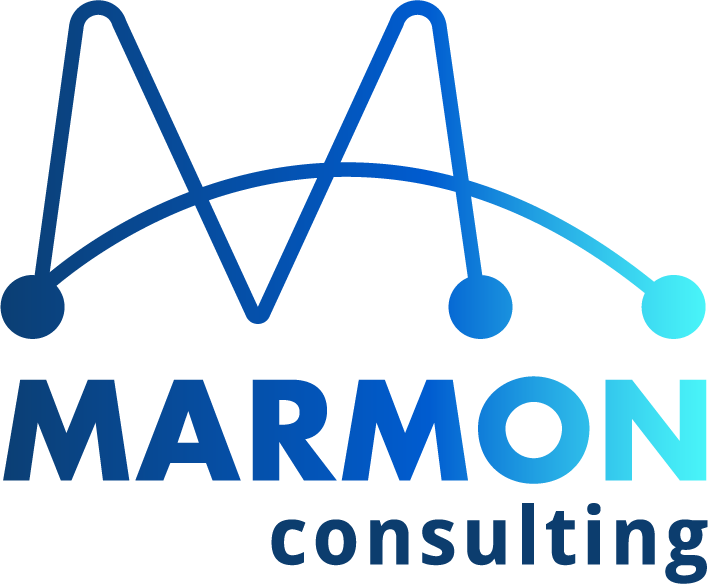Blog


Pam Marmon
How to Prepare Your Organization for Change
The following is adapted from No One’s Listening and It’s Your Fault
Maybe you’re ready to lead your company through a major transformational initiative. But wait! Is your company ready, too?
As an ambitious business leader, it’s easy to be excited and anxious to get started on the plan that will transform your company and take your success to the next level. But if you jump in too soon without assessing your company’s readiness, you risk wasting time, resources, and your employees’ trust and patience.
To determine if your organization is prepared, you can conduct a Readiness Assessment: an information-gathering process that will clue you in on your company’s strengths and weaknesses, allowing you to fully prepare before launching your transformational initiative.
Let’s explore what a Readiness Assessment is and why you should invest in one before making a significant organizational change.
Conducting Readiness Assessments
A Readiness Assessment involves conducting interviews with various stakeholders at your company. The answers you receive will earn you valuable information that lets you better gauge your company’s readiness to undergo a transformation and guides you as you create a plan.
In addition to helping you define your change management plan, the Readiness Assessment provides you with an opportunity for feedback and engagement while achieving the following objectives:
- Share information: A well-crafted Readiness Assessment will draw out insights and arm stakeholders with key messages that will strengthen your informal communication channels.
- Gather input: By selecting the most fitting questions, you obtain valuable insights and a baseline to benchmark your starting point as it relates to your people.
- Generate ideas: If you want to test concepts and find alternative solutions, you can include open-ended questions that draw out creative ideas.
- Make decisions: Perhaps the most significant benefit of a Readiness Assessment is that it provides you with data to make decisions so that people believe their ideas matter and their leadership understands what is at stake.
With these objectives in mind, you want to select appropriate participants who can provide you with targeted data relevant to your goals. Consider selecting a blend of influencers from various impacted groups. It’s helpful to have the perspective of executives and managers, as well as front-line employees. At a minimum, include a representative from each impacted area.
As a leader, your role is to ensure that participants feel empowered to share information that will remain confidential and anonymous. Working with a neutral party or consultant ensures that you will get raw, pure feedback that will help you make decisions regarding implementation.
The key factor to a successfully executed Readiness Assessment is a seasoned interviewer, who knows how to create psychological safety, when to sit in the awkwardness of the silence, when to ask a probing question, and when to simply listen because it’s the right thing to do.
As important as the interviewer is, the questions they ask are equally vital to the Readiness Assessment’s success and the quality of information it produces.
Asking the Right Questions
Now that you know your objectives, what questions should you ask to get your desired results?
As a change management consultant who has led countless Readiness Assessments, there are several categories I reference depending on the scope of the transformation. Keep the focus on moving the organization forward while learning what has and has not worked in the past.
Most interviews should last thirty minutes and address some or all of the following categories:
- Past changes
- Culture
- Leadership capability
- Case for change
- Stakeholder impact
- Awareness for the need to change
- Desire to change
- Motivation
- Behaviors
- Communication
- Training
- Resistance management
- Influencers
- Accountability
Drawing from these categories, customize your assessment to provide information that helps you plan for your desired organizational change.
Invest in the Readiness Assessment
Before you go ahead and run your own assessment, here is my word of warning: the quality of the data you collect depends almost entirely on the quality of the assessment you perform, which is why I recommend hiring a change management consultant for this process. Making sure your Readiness Assessment delivers actionable data is an investment that will save resources for your initiative in the long run.
A consultant can help you manage every step of the process. Many clients presume they can tackle change management in-house, but fail to allocate incremental time so the assigned person can properly navigate the change. It’s likely that the Readiness Assessment will include information that you expected to see, and some information that may surprise you. A consultant provides a neutral perspective and can remain objective when tension surfaces.
By investing in the Readiness Assessment process and collaborating with a professional, you’ll ensure that you’re asking the right questions to the right people and collecting the most valuable information to guide your transformational initiative. To get started, connect with us at Marmon Consulting. Every transformational effort is worthy of a good start.
For more advice on leading successful transformational initiatives, you can find No One’s Listening and It’s Your Fault on Amazon.
PAM MARMON is the CEO of Marmon Consulting, a change management consulting firm that provides strategy and execution services to help companies transform.
